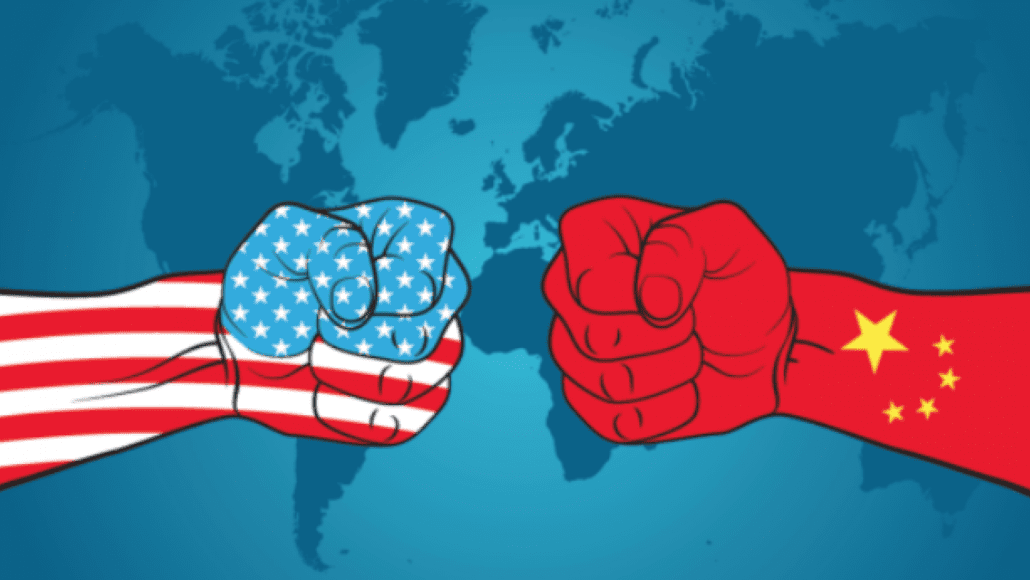The Chinese had, in fact, stated that “politeness demands that China comes out with measures in response to unilateral US announcements of tariffs.” The pitch was further hyped by the US President imposing later rounds of imposts on $100 billion imports into the US, over and above those he had announced earlier. One expected that China should again respond to that. But China didn’t. Here’s an analysis, for Different Truths.
After US President Donald Trump announced three rounds of tariff proposals on Chinese products entering the US and the Chinese responses of counter tariffs on US goods entering China, it was felt that a raging trade war would soon break out. The Chinese had, in fact, stated that “politeness demands that China comes out with measures in response to unilateral US announcements of tariffs”.
The pitch was further hyped by the US President imposing later rounds of imposts on $100 billion imports into the US, over and above those he had announced earlier. One expected that China should again respond to that. But China didn’t.
There were reasons. First, China’s imports from the US were not that much in value to impose further tariffs on additional goods. China had nearly exhausted its tariff weapons in the first two installments of its tariff decisions. Thereafter, the tariff would call for products which were not simply there in Chinese import basket. But notwithstanding that, China’s tariffs, if pursued to the bitter end, would have hurt sections of US producers very badly.
For example, almost one-third of US production of soybeans went to China and large tariffs would have brought that to a halt. Again, the tariff on imports of aircraft (Boeing) would mean a serious loss to the US plane maker and a critical advantage to its trans-Atlantic competitor Airbus Industries. These would have sullied Donald Trump’s domestic base as well.
When the countries were ranged thus, and the world was waiting for the next moves, came the Chinese counterpart of Davos World Economic Summit. China holds a similar conference at Hainan province called the Boao Conference for Asia for the last twenty years. It is thought to be important because the host of politicians and corporate honchos gather there if for nothing than to hear the Chinese politicians speak.
The Boao Conference was inaugurated by China’s newly re-elected president Xi Jinping. It was widely seen as the platform for Chinese President, Xi Jingpin, to lash out at the US and unfurl his further responses to the provocations from the United States. He did diver his speech at the Boao Conference but it did not have any of the belligerent tones. The response has come as a big relief. President XI has done no economic saber rattling that many expected.
Xi Jinping carried on in the same vein as he did at this year’s Davos Conference. He posed as the flag-bearer for trade and economic liberalisation without making any direct reference to the United States. He outlined China’s proposals for further opening up its financial sector, prospects for raising foreign ownership limits and opening up banks and auto sectors.
If at all, President Xi’s regrets about the re-emergence of the “cold war mentality” were the oblique reference to the US. He believed that such an attitude would harm global prospects than resolve issues.
However, Xi JJinping’sgood words are at best vague promises and no indication was given at all of the specific liberalisation in any of the sectors. Nor were there any timelines.
Nevertheless, the global financial markets took the cue from the Chinese president’s words and values soared. This happened not because the Chinese president has in effect given any indication of specific concessions, but that he was avoiding a dug-in hard knocks bout with the US. Is this softening of the Chinese position to US threats or is it just papering over the rough edges for the time being. Is China buckling, that is the question.
China has reiterated such pledges many times in the past as well. On the ground, things changed little. It is true that China has taken full advantages of the open trading regime and gained huge economic benefits. It is difficult to get into Chinese markets and yet China demands full market access. Above all, China has manipulated its currency and even in course of the current spat China had evaluated ways of depreciating its currency to gain competitiveness.
Seen in its context, China has a huge trade surplus of around $400 billion in merchandise year after year. Compared to that US exports much less and it feels aggrieved that its exports face unfair competition in the Chinese markets. Additionally, its companies get little access into Chinese markets while Chinese companies are increasingly establishing their presence in the US. The Chinese companies, often having large state holding in their capital, are entering US markets and buying up US companies.
These features of Sino US trade are not restricted to the US. The same pattern is seen for the country after country. It can surely not be the case that China is the only efficient manufacturer in the world and all others less competitive for the largest range of products. Unfair trade practices and restriction to an entry of imports remain the basic bricks of Chinese policy regime.
In the matter of investment as well, China has similar restrictive policies and discriminates against foreign investors. These have now been taken up and Donald Trump had taken the issues headlong, which makes all the difference.
Only recently, USA, rejected a bid by a Singapore based Chinese owned company to buy up US’s largest semi-conductor chips manufacturing unit which is considered a critical telecoms technology player. It had earlier rejected a Chinese company from buying up a port in the US.
US has grievances that China arm-twists US companies to part with their proprietary technology as a condition for entry into the vast Chinese markets. Because of the size of the Chinese market, the companies are obliged to accept all these concessions.
But then, China has so much at stake and the re-elected life time president has to ensure that the Chinese economy just not run aground in the absence of large scale exports; he has chosen not to altogether antagonise the US. All he will is sweet talk for the time being and bide for his turn.
Anjan Roy
©IPA Service
Photo from the Internet






 By
By
